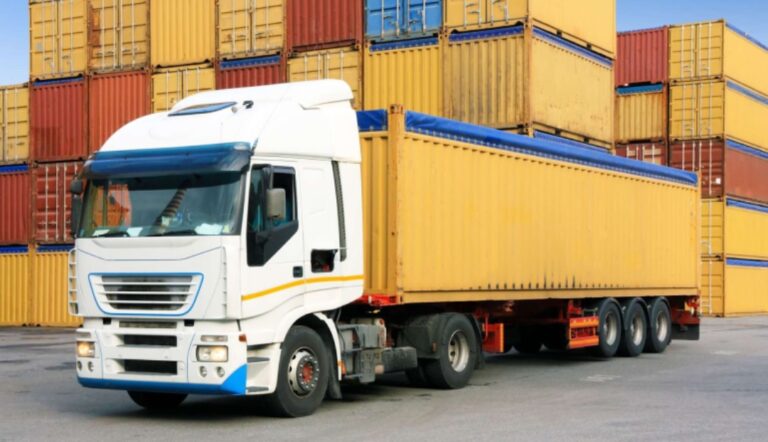Introduction to Freight Forwarders in Modern Logistics
Businesses send products all over the world every day. Freight forwarders help make this happen. They move goods safely and quickly from one place to another. They work with ships, planes, and trucks to deliver your products. They also take care of paperwork and follow rules. Choosing a good freight forwarder in a place like the Dubai Designated Free Zone is a big decision. This guide explains how to pick the right one in simple, clear sentences. It keeps all the important details you need to know.
Assess Your Business Needs
You need to know what your business wants before you pick a freight forwarder. Think about what you are shipping. Are your products easy to break, like glass cups? Do they spoil fast, like fresh vegetables? Are they dangerous, like chemicals? Decide where your goods are going. Are they staying in your country or traveling far away? Figure out how often you need to ship. Do you send products every day, every week, or just sometimes?
For example, if you ship fresh fish from Dubai to Paris, you need a forwarder who knows how to keep things cold. If you only ship a few times a year, you want someone who can work with your schedule. Knowing these details helps you find a forwarder who fits your needs.
Experience and Reputation
A freight forwarder with a lot of experience is usually the best choice. They know how to ship things well because they have done it for a long time. They have good connections with shipping companies and ports, which makes deliveries faster. You can check if they are good by looking at what other people say. Read reviews online or ask the forwarder for names of happy customers.
You can also see if they are part of groups like FIATA or IATA. These groups are for shipping experts. A certificate called ISO 9001 shows they follow high standards. Asking other businesses for recommendations is often better than trusting ads. For example, a forwarder who has shipped furniture from Asia to Dubai for many years will likely do a great job for you.
Global Network and Local Presence
A great freight forwarder has friends and offices all over the world. In places like the Dubai Designated Free Zone, they need partners in other countries to make shipping smooth. These partners help with paperwork, store your goods, and fix problems quickly. By 2025, the best forwarders will have their own teams at big ports in Europe, Asia, and America.
Having people in the places where your goods are going saves money and makes things clearer. For example, if you send toys to Italy, a forwarder with a team there can handle rules fast and avoid delays.
Technological Progress and Digital Transparency
Technology makes shipping easier to understand. Good forwarders use tools to show you where your goods are at all times. You can check your shipment on your phone, like tracking a package from an online store. They also use digital forms to avoid mistakes and give you quick price details.
By 2025, top forwarders will have apps or connect to your business software. This helps you stay updated and manage your shipments easily. When selecting a freight forwarder in Dubai, choose one with simple technology to keep you informed.
Financial Transparency and Hidden Costs
Cost is important when picking a forwarder, but don’t just choose the cheapest one. Some forwarders add extra fees you don’t expect. These fees might include:
- Extra charges during busy times, called peak season surcharge.
- Fees for fuel, called BAF or LSS.
- Security fees at ports, called ISPS.
- Special fees for handling heavy or delicate items, like machines.
A good forwarder tells you all the costs at the beginning. Ask for a clear list of prices so you know what you will pay. For example, if you ship large boxes, make sure they explain if there are extra fees for handling.
Here is a table showing costs to ship a big container from China to Hamburg in 2025:
| Way to Ship | Cost (USD) | Time to Arrive |
|---|---|---|
| Sea | $2,800 | 35 days |
| Air | $15,000+ | 5–7 days |
| Rail | $9,800 | 18 days |
Choose a forwarder who helps you pick the best way based on your budget and how fast you need your goods.
Flexibility and Adaptability
Shipping can have surprises, like new rules or bad weather. A good forwarder can change plans quickly. If a ship gets stuck, they might send your goods by train instead. They can also mix different ways of shipping, like using a truck and a plane together.
For example, if a storm stops a ship, they find another way to get your goods to you. They listen to what you need and suggest ideas to help. This keeps your business running smoothly.
Legal Clearance and Assistance
Shipping to other countries means following customs rules. These rules can be hard to understand. If papers are wrong, you might pay fines or wait a long time. A good forwarder knows how to handle customs. They fill out forms, get permits, and offer insurance for your goods.
This is very important in busy places like Dubai. If you ship something tricky, like dangerous materials, they make sure everything follows the rules so your goods arrive without problems.
Insurance and Risk Management
Things can go wrong when shipping, like goods getting lost or broken. A good forwarder offers insurance to protect your products. By 2025, many forwarders will include insurance for expensive or delicate items, like computers or artwork.
Make sure they work with trusted insurance companies. Ask what the insurance covers, like theft or damage from water. For example, if you send valuable watches, insurance helps you feel safe if something goes wrong.
Communication and Customer Service
Talking to your forwarder should be easy. They need to answer your questions quickly and tell you what’s happening with your shipment. Good forwarders are available all the time, even at night, to help with problems.
By 2025, customers will want forwarders who send updates, like a message saying, “Your goods are delayed, but we’re fixing it.” This kind of service makes you trust them and keeps your business running well.
Compare Transport Modes and Optimize Routes
You can ship goods in different ways: by sea, air, rail, or a mix of these. Each way has good and bad points:
- Sea shipping is cheap but takes a long time, about 35 days from China to Hamburg.
- Air shipping is fast, arriving in 5–7 days, but costs a lot.
- Rail shipping is in the middle, taking 18 days and costing less than air.
- Mixing ways can save time or money, depending on what you need.
Your forwarder should help you choose the best way. For example, if you need clothes for a store opening soon, they might suggest air to get them there fast.
Conclusion
Choosing a freight forwarder is like picking a partner for your business. It’s not just about moving goods. It’s about finding someone who helps you grow, saves money, and handles problems. In 2025, shipping will be more complicated, but a forwarder with experience, good technology, and clear communication will help you succeed. Take time to check reviews, ask questions, and compare prices. With the right forwarder, you can send goods anywhere, from the Dubai Designated Free Zone to the world, with confidence.





